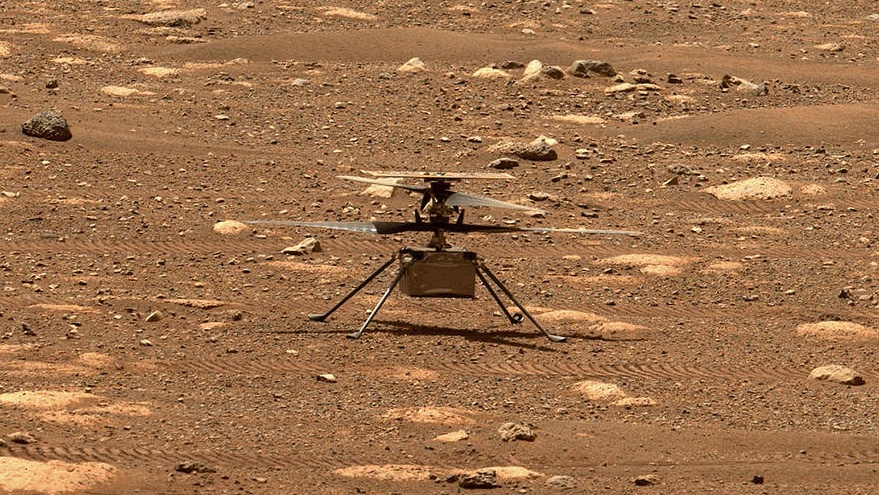Products You May Like
WASHINGTON — NASA now plans to attempt a first flight of the Mars helicopter Ingenuity early April 19 after finding a workaround to a software problem that delayed the flight earlier this month.
The agency announced April 17 that the first flight of the 1.8-kilogram helicopter will take place at 3:31 a.m. Eastern. Images and other data will arrive back on Earth starting at about 6:15 a.m. Eastern, with a press conference later in the day if the flight does take place.
The flight was previously scheduled to take place April 11 but was postponed after a final preflight test, where the helicopter’s rovers are spun up to full speed, was aborted because a “watchdog” timer expired. That time oversees the command sequence and stops the test if there is a problem.
MiMi Aung, project manager for Ingenuity at the Jet Propulsion Laboratory, said in an April 17 blog post that engineers examined two approaches for solving the problem. One was to update the helicopter’s flight software. That process is relatively straightforward, but requires several days of testing on Earth, and then several days to install and test it on Ingenuity.
The second approach, and the one adopted by the project, is to simply modify the timing of commands slightly. This has been tested on the ground and was also used to allow Ingenuity to perform a high-speed rotor test April 16, the same test aborted by the watchdog timer issue a week earlier.
“This solution is the least disruptive to a helicopter that, up until we identified the watchdog issue, has been behaving just as we expected,” she wrote. “It is the most straightforward, since we do not have to change its configuration.”
Adjusting the command sequence should allow Ingenuity to transition into flight mode 85% of the time. “We also know that if the first attempt does not work on Monday, we can try these commands again, with good probability that subsequent tries in the days following would work even if the first doesn’t,” she wrote. “For these reasons, we’ve chosen to pursue this path.”
The project is continuing to test the software modifications, and is prepared to take that approach if the command timing workaround doesn’t allow Ingenuity to take off. Aung noted, though, that it would require “several additional days of preparation” to install and test the software, then redo a series of rotor tests of the helicopter, before it would be ready to fly again.
The project hopes to perform as many as five flights of Ingenuity over a 31-day test campaign, with the first flight simply going to an altitude of three meters, hovering, and then landing. Later flights will be more ambitious, going up to five meters and traveling tens of meters downrange and back.
